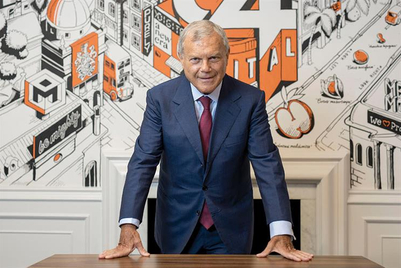
Interpublic’s top executives at the holding company level will continue to be paid reduced salaries for the rest of 2020 because of the coronavirus downturn – in contrast to some rivals, including WPP and Publicis Groupe, that have ended such reductions.
Michael Roth, global chairman and chief executive of Interpublic, and other senior figures accepted salary reductions of up to 20% from the start of Q2 as the global economy and the ad market have slumped.
It is understood that IPG’s leadership believes it is important to show solidarity with lower-ranking employees during a prolonged period of remote working and continued economic downturn.
The exact number of people who have taken reductions at the holding company is unknown but it is likely to be in the high double digits.
The cuts are said to affect all executives at the level of vice-president and above.
An Interpublic spokesman said: “IPG senior executives like Michael took a 20% pay reduction starting in the second quarter of 2020, and the cuts for our named executive officers will flow through to total compensation as well, not just base salaries.
“Salary reductions for mid-level executives at the holding company were smaller, and all reductions are expected to be in effect through the end of year at the holding company.”
IPG, which employs about 52,000 people, was the best performer of the big six agency groups in Q2, reporting a 9.9% decline in organic revenue.
The holding company asked its agencies, which include Initiative, McCann, MullenLowe, R/GA, UM and Weber Shandwick, to make savings at the start of Q2 but it gave the leadership of each network the freedom to decide the extent and duration of any cuts and salary reductions, and they varied by agency.
Nearly all of IPG’s agencies made some kind of savings and it is thought some have restored salary reductions.
Rivals take different approaches
More than 3,000 executives at WPP took salary reductions of up to 20% at the start of Q2 but the cuts lasted only three months.
Higher earners at Publicis Groupe also took pay reductions for up to six months between April and September, although the UK operation ended its cuts a month early.
Arthur Sadoun, global chairman and chief executive of Publicis Groupe, who took a 30% cut himself, told Campaign in an interview last week that “salary reductions have ended everywhere now, including mine.”
He said: “It’s too early to say if things are definitively getting better, but encouraging signs across the business have allowed this decision to be taken [to end the pay cuts].”
Publicis Groupe reported better than expected Q3 numbers, with its organic revenue decline easing to 5.6%, but warned that conditions could deteriorate because of a second wave of infections.
In a significant comment, Publicis Groupe said Q4 revenue “might be impacted further and come below” Q3.
John Wren, global chairman and chief executive of Omnicom, gave up 100% of his salary for six months as part of a savings exercise.
An Omnicom spokesman declined to say whether it has made a decision on ending those cuts.
Colin Fleming, chief operating officer at Connor Broadley, an investment management firm that works with several UK agencies, said pay cuts are a “blunt instrument” but created a “shared sense of responsibility” at the start of the pandemic when savings were urgently needed.
However, as the market has shown signs of recovery, “the days of uniform pay cuts being calmly accepted are over”, he said.
There needs to be “clarity on what is required to reverse them” because salary reductions can lead to “poor morale” or even a “talent exodus”, according to Fleming, although he said long-term bonuses and share awards can help to “tie in” executives.
“I have seen pay management work best in agencies which have an openly shared plan showing income milestones required to get back to pre-Covid pay,” he said.
"In one case recently at an independent agency, I have heard of the positive morale impact following repayment of some Q2 pay cuts made on over-delivery against Q3 milestones.”


.jpg&h=334&w=500&q=100&v=20250320&c=1)


.jpg&h=334&w=500&q=100&v=20250320&c=1)
.jpg&h=334&w=500&q=100&v=20250320&c=1)
.jpeg&h=334&w=500&q=100&v=20250320&c=1)


.jpg&h=334&w=500&q=100&v=20250320&c=1)





.jpg&h=268&w=401&q=100&v=20250320&c=1)

.jpg&h=268&w=401&q=100&v=20250320&c=1)
.jpg&h=268&w=401&q=100&v=20250320&c=1)